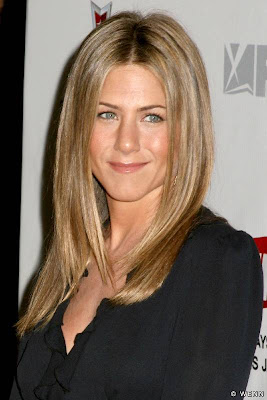Premise: After a young woman in a small town finds out she’s going to die, she meets a man who will go to the ends of the earth to preserve her memory.
About: This was one of the ten finalists in the 2010 Nicholl Fellowship screenwriting contest. The Nicholl is the biggest screenwriting competition in the world. It receives over 6000 entries every year. Friends who read all the scripts recommended The Last Queen to me.
Writer: Tim Macy
Details: 104 pages - undated (This is an early draft of the script. The situations, characters, and plot may change significantly by the time the film is released. This is not a definitive statement about the project, but rather an analysis of this unique draft as it pertains to the craft of screenwriting).
I wasn’t going to review any Nicholl scripts this year but a bunch of you kept e-mailing asking me to please please please review them so I finally decided to read one. I understand the curiosity. Screenwriters want to see what’s winning or placing in the biggest screenwriting competition in the world. Makes sense. Unfortunately, I think they’re curious for the wrong reasons. It seems like most writers want to see what won just so they can say, “That?? That won over *my* script?? There’s no way! Contests are shams!”
Here’s the thing with screenwriting contests. When you become a really good writer, people notice, and they start paying you for it. Once you get paid, you can’t enter a lot of these contests (You don’t qualify for Nicholl if you’ve made – I believe - more than 5,000 dollars writing). That means that the entrants in these competitions are all true amateurs. And we’re amateurs for a reason. Because we haven’t figured it out yet.
Sure we’ll have a great scene here or a great villain there. But we might not know how to build up a second act yet. We might not know how to arc our main character. We might have trouble with dialogue or not yet know how to add conflict to our scenes. We may not have discovered subtext. We might make things too easy for our characters. We might not know when to cut a pointless subplot or how to fix a romance that has no spark. There are hundreds of skills that need to be perfected in screenwriting and that takes time. It’s part of the challenge of this unbelievably difficult craft, and what makes it so fun.
So don’t cut these scripts down because they won. Try to figure out what they did right. Learn from them. This isn’t a panel of dopes deciding on these things. These are guys who know their shit. Figure out why they’re picking these screenplays over yours then use that knowledge to improve your next draft.
All right. After that long and possibly worthless rant, let’s get on to our review…
Neff is a small town 20-something girl who lives alone in a trailer. High school was pretty good to her but she’s fallen through the cracks since. She works as a checker at “Tut’s,” the local supermarket, throwing boxes of saturated fat across a scanner all day until her hands go numb.
Neff’s only real hope is her writing. She’s written a novel titled “The Last Queen” which she’s sent to every publisher known to man. They’ve all rejected her.
One night after work, Neff loses control of her car and crashes. It shakes her up a bit but she feels fine. That is until the doctors inform her that the crash has opened a vessel in her brain, and that this particular inoperable injury will kill her within a few weeks. Make sure to wear your seatbelts boys and girls. And don’t text and drive.
On the other side of town, Livingston Wells, a plain staunchy young man, has come back home to bury his father, who’s left Livingston his farm. Livingston’s bitchy older sister, Juniper, is running for Mayor of the town, and wants to buy the farm from Livingston and use it as a food source for the town, in hopes that the gesture will win her votes.
Livingston could care less. That is until he runs into Neff. You see, Livingston has been in love with Neff ever since they were kids. But high school being the way it is, she never noticed him. Before he treks back off into the real world, he figures ‘why not,’ and marches over to Tut’s to ask her out (in one of my favorite scenes of the script).
It doesn’t take long for Neff to reveal her predicament though, and their relationship is off to the races, trying to cram in as much together time as two can in a few weeks. Eventually, however, they have to face reality, and when Neff tells him about her fascination with ancient pharaohs, Livingston comes up with the idea that they build her a tomb here on his farm.
See Neff is terrified of being forgotten. And by Livingston’s estimation, the adjacent river will feed back over the burial site in about 10,000 years, exposing the tomb and allowing whoever is around at the time to dig her up. She’ll essentially become a link to the past for whoever’s around then.
Of course, as Livingston begins to build this thing, the town rebels against it, and since questionable activity from a brother doesn’t help your Mayoral race, Juniper spearheads a movement to stop Livingston from building the tomb.
The Last Queen is reminiscent of two of my favorite movies, Field of Dreams
Obviously, the subject matter is pretty morbid. I mean the entire story is focused on a character who’s about to die. As a writer, it’s pretty tough to pull in anyone other than a niche audience when death is the theme of your movie.
So what do you do?
You include humor.
If you can make the audience laugh, they’ll be more willing to go on this journey with you, as we are here. I wasn’t a huge fan of The Bucket List
Here, Neff is celebrating absurd future birthdays with people she doesn’t know. She’s sarcastic, constantly commenting on the ridiculousness of the ordeal. There’s a lightheartedness to the whole thing that keeps the story from becoming a melodramatic mess. I probably would’ve liked even more humor, but what’s here is adequate.
I also want to applaud Macy for solving a tough problem. How do you write a movie about a guy willing to mortgage his house to build a tomb for a girl he started dating three days ago? We’re simply not going to buy that story without some extenuating circumstances. So Macy made the smart choice of giving Livingston a lifelong crush on Neff. Essentially, this relationship started a long time ago. Just not on Neff’s side. This may seem unimportant. But you need to make sure the logic of your characters’ choices holds up in a screenplay. If your character does something nonsensical just because you need him to to make the story work, your screenplay will scream amateur.
The Last Queen also has a couple of nice ticking time bombs going for it. Obviously you have Neff’s death. But you also have a parallel ticking time bomb in the town election, which pushes our villain, Juniper, to act now as opposed to later. These are the things that add urgency to your story, which I don’t see in a lot of contest scripts that aren’t advancing. Ticking time bombs are the easiest way to give thrust and immediacy to your story.
I did have some problems with the script, but nothing that can’t be fixed. People are going to go nuts about the on-the-nose character naming here. Neff (Nefertiti). She works at “Tut’s” (King Tut). I think Macy takes it a little too far and while this didn’t really bother me, I know it bugs the hell out of other readers.
It’s also never explained how Neff became a recluse when she was apparently popular enough in high school to be wanted by all the boys. It’s rare in small towns that that kind of person just dissolves and becomes a hermit. I mean she doesn’t have a husband, a boyfriend, a best friend, anything really. And it’s not clear to me why that is but I can take a guess.
For whatever reason, early on in every writer’s career, they’re attracted to loner characters. They like characters who are out on their own doing nothing, probably because that’s kind of how writers are. But it’s hard to make these kinds of characters interesting and I believe that’s the case here. Neff is so distant, so inaccessible that it’s hard to connect with her. In fact, her personality is so protected, we have trouble believing that she’s even interested in Livingston in the first place. And for this to work, you have to believe in the love between these two. So it’s not there yet, but it can get there.
The Last Queen was right up my alley. It has its faults but overall it’s a unique offbeat story that’s worth checking out.
[ ] What the hell did I just read?
[ ] wasn’t for me
[x] worth the read
[ ] impressive
[ ] genius
WHAT I LEARNED: Make sure the love interest in your screenplay is just as fleshed out as your hero. When you write a script, your first job is to deal with your main character’s life: their backstory, their flaws, their idiosyncrasies, their relationships with friends and family, any inner conflict they’re dealing with, etc. But what I’ve found is that writers get so exasperated from building that character, they give only half the effort when building up the romantic interest. Their backstory is half-assed, they probably don’t have a flaw, the writer doesn’t pay attention to their relationships with others. This is a huge mistake. You want to know just as much about the other person as you do the hero. Here, Livingston has a whole life going on before Neff even enters into the equation. His father just died. He has a dysfunctional relationship with his sister. He has to decide whether to sell his farm or not. We could probably build another movie around Livingston because he has so much going on. Make sure to approach all your big characters this way.















